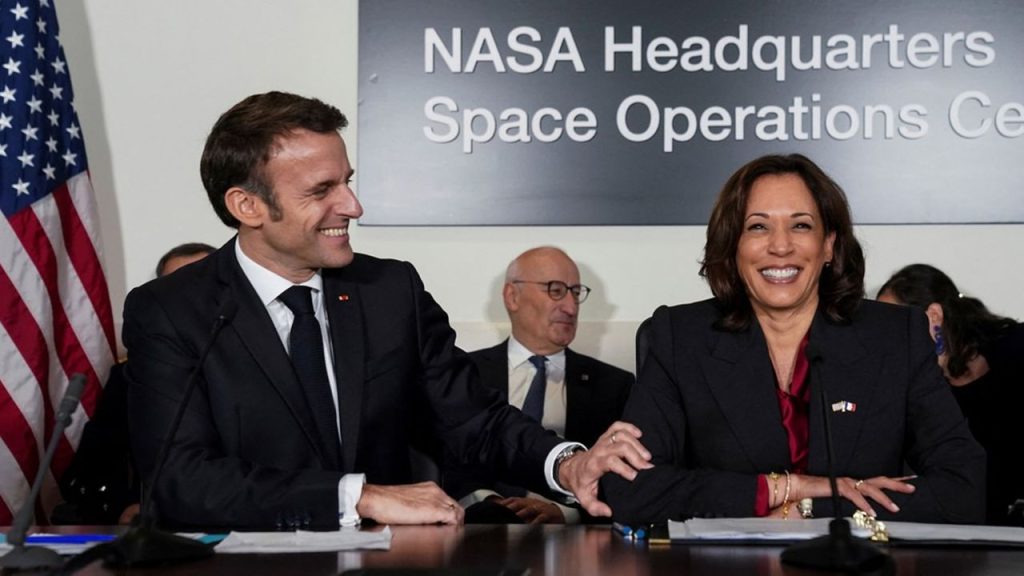
France and the United States want a clean space
Posted Nov 30, 2022 6:40 pmUpdated November 30, 2022, 7:27 PM
At the start of President Emmanuel Macron’s state visit to the United States, the two countries chose to focus on a consensual, popular, and pragmatic theme: space cooperation. And so began the French president’s state visit Wednesday morning in Washington with a tour of NASA headquarters to celebrate Franco-American cooperation in space with Vice President Kamala Harris. “Space is a new place of conflict and it is very important that we work together to establish new rules for its use,” emphasized Emmanuel Macron, while Kamala Harris affirmed the United States’ commitment not to conduct destructive tests and thanked France for joining the UN resolution not to conduct destructive missile tests with direct ascent against satellites. industrial. A decision was passed last October that represents an important step in favor of protecting the space environment during rocket launches on satellites such as The Russian photo for November 2021 causing many streams.
60 years of cooperation between the French National Center for Space Studies and NASA
At NASA headquarters, France introduced the new astronaut, Sophie Adinot Flight guest with Thomas Pesquet and CNES President Philippe Baptiste. Kamala Harris, who heads the Federal Space Council, has already discussed the future of space with Emmanuel Macron during previous visits to Paris. An in-depth dialogue was held between the two countries to make progress on key issues such as combating climate change, sustainable space economy, and searching for international standards to regulate traffic in space and prevent collisions between satellites.
Between the French National Center for Space Studies and NASA, the scientific collaboration is already sixty years old. In a few days, on December 12 to be exact, the Falcon 9 launcher of SpaceX is scheduled to put into orbit a French-American model, the SWOT satellite, which will make it possible to examine 90% of the surface waters of the Earth, observing in minute detail to the surface of the oceans and to assess how lakes, rivers, reservoirs and oceans have changed over time. The SWOT mission is very important to improve the management of water resources in times of climate change. It’s part of a long list of joint programs: the Curiosity or Perseverance rover on Mars, and the Topex-Poseidon altimeter satellites, the service module of the Orion capsule currently orbiting the moon.
Find new rules of the game
“There is a new golden age in space in the United States. France and Europe, through the successful landing of the rover perseverance On Mars or the Ariane 5 transmission of the James Webb Space Telescope, it is seen as an important and reliable partner, ”explains someone at the US Embassy. Evidence of this confidence, this fall France joined the “Artemis Accords” championed by the United States to update the principles of the space treaty for 1967 in perspective NASA’s manned lunar program . Thus, France is the twentieth member of these agreements.
For its part, the United States joined the Space Climate Observatory last June, this time a French initiative, to collect data from 30 signatory countries and international organizations, in order to facilitate the development of operational tools for climate adaptation. they change.
Faced with the explosion of satellites in space, France is pushing the United States to work in the United States and in international forums on a law similar to the French Law on Space Operations (LOS), which obliges players in space not to pollute space. Kamala Harris said she wanted new standards, but that they would be decided with private operators. With the United States accounting for 60% of the world’s space budgets, its standards stand a good chance of being enforced.

“Organizer. Social media geek. General communicator. Bacon scholar. Proud pop culture trailblazer.”
